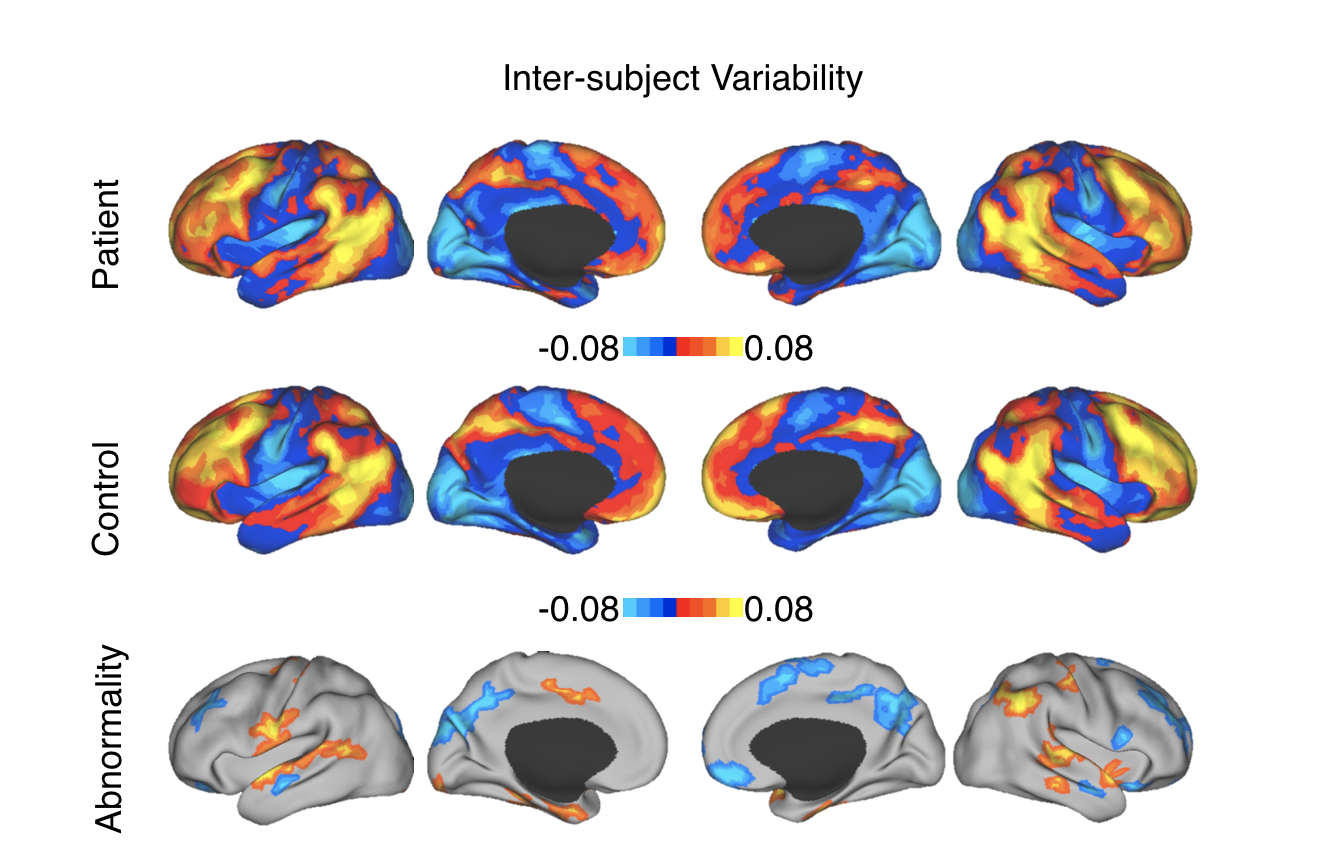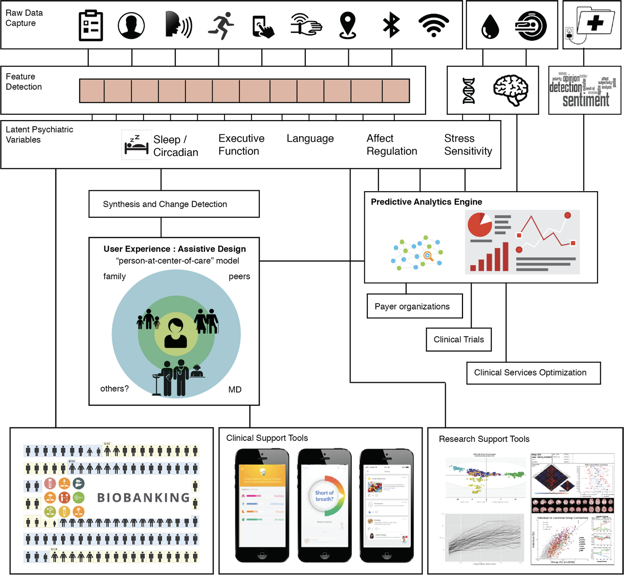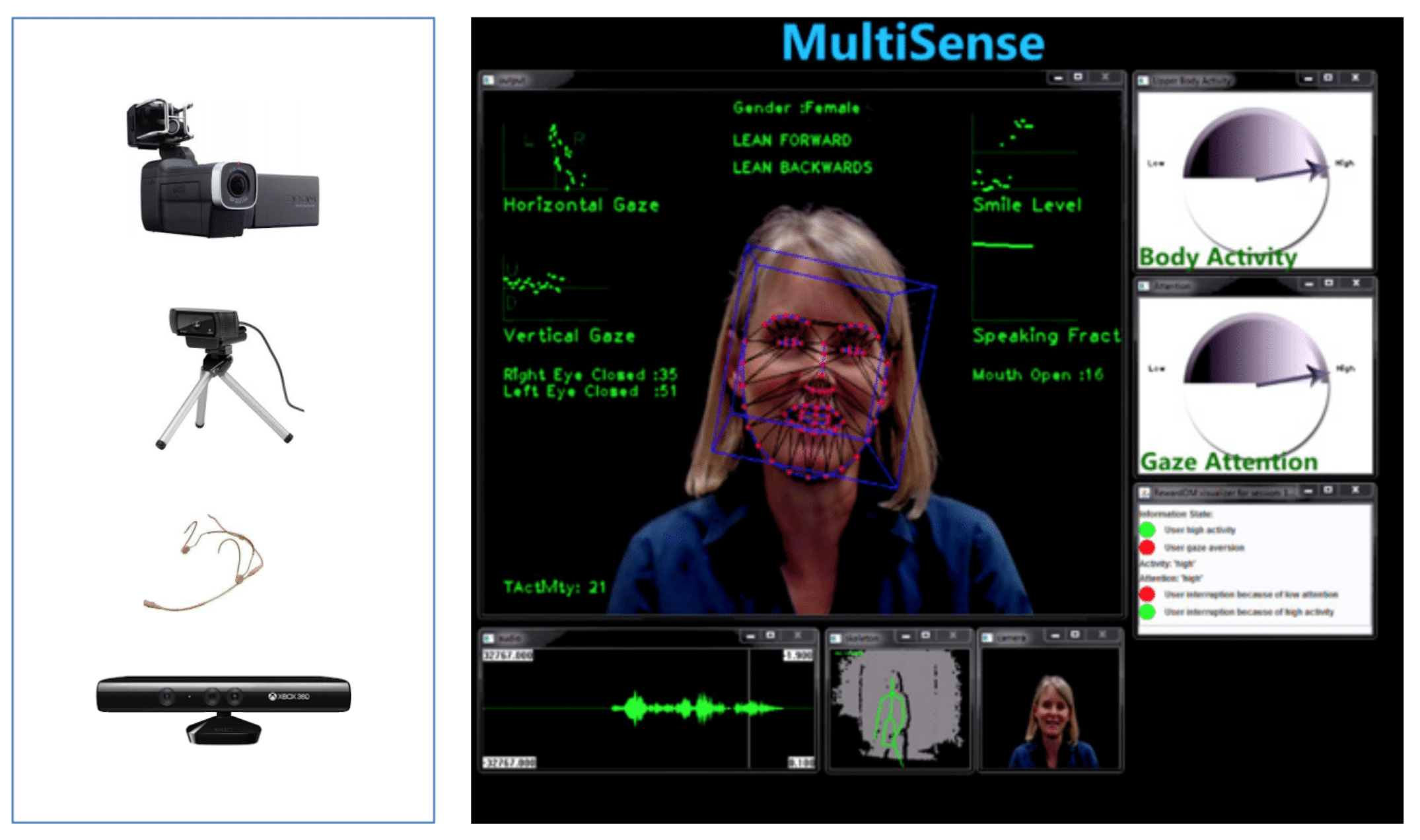
Dr. Baker’s lab conducts research to understand the nature and underlying biology of mental illnesses, particularly lifelong conditions like schizophrenia and bipolar disorder. The goal of this work is to develop more effective strategies to both monitor the course of illness and intervene in creative ways to improve the lives of individuals struggling with these conditions.
The lab uses multiple behavioral, neuroimaging and computational approaches to explore human brain network organization and how variation at multiple biological levels gives rise to differences that affect behavior, including dysfunction in neuropsychiatric illness.
A central focus of the Baker lab is on understanding how the functional architecture of the human brain changes as a function of psychiatric illness. Historically, most research on the biological origins of psychiatric illness has focused on individual diagnostic categories, studied in isolation. Mounting evidence indicates that nominally distinct psychiatric diagnoses are not separated by clear neurobiological boundaries.

One set of studies in the lab obtains a narrow slice in time from many individuals, studying how brain changes relate to behavioral expression between individuals, such as at the level of disorder labels (i.e., “diagnoses”) or more continuous patterns of symptom expression at a single point in time. One recent study derived functional connectomic signatures in over 1,000 individuals, including patients presenting with different types and severity of impairment, and found features of both shared and specific connectomic functioning. These data have important implications for the establishment of functional connectomic fingerprints of severe mental disease that may lead toward biologically based understanding across a wide range of clinical presentations.
And yet, no two brains are identical. Recently the lab has turned its attention to studying how changes within an individual’s brain over time may reflect their symptom experiences, how they perceive the world, and how they express behavior. This push toward the individual brain is critical for clinical translation as well as addressing a number of open questions about how transient brain states may influence behavior.

The lab’s current “deep phenotyping” projects use single-case experimental designs in individuals with severe conditions including bipolar disorder, schizophrenia, borderline personality disorder, and obsessive-compulsive disorder. The essence of this work is to combine multiple measurement modalities – such as audio-visual recordings, electronic health record data, activity from personal tracking devices and smart phones, as well conventional measures including subjective reports from patients and clinicians – to capture the rich interplay between clinical and behavioral responses over time at the individual level, and thereby deepen our understanding of the relationships between subjective and objective measures of psychiatric illness. By applying computational approaches, such as latent construct modeling, machine learning, and dynamical systems analysis, the data collected from each study – and each individual – can reveal key relationships to advance human neuroscience and develop novel, personalized therapeutics.

Finally, in addition to conducting basic and translational neuroscience and behavioral studies, the Baker lab conducts both clinical research and quality improvement studies to engage clinicians and other care providers to integrate tools developed in the lab into clinical practice. Past projects have included trials of smart phone apps for case management and peer support in early and chronic psychosis, respectively, as well as during the immediate period following acute hospitalization to reduce readmission rates. Current projects seek to incorporate continuous wearable actigraphy into clinical workflows for sleep and movement monitoring in several of McLean’s inpatient and residential services, and automated interview analytics into workflows for clinical assessment, using computer vision, acoustic analysis, and natural language processing.